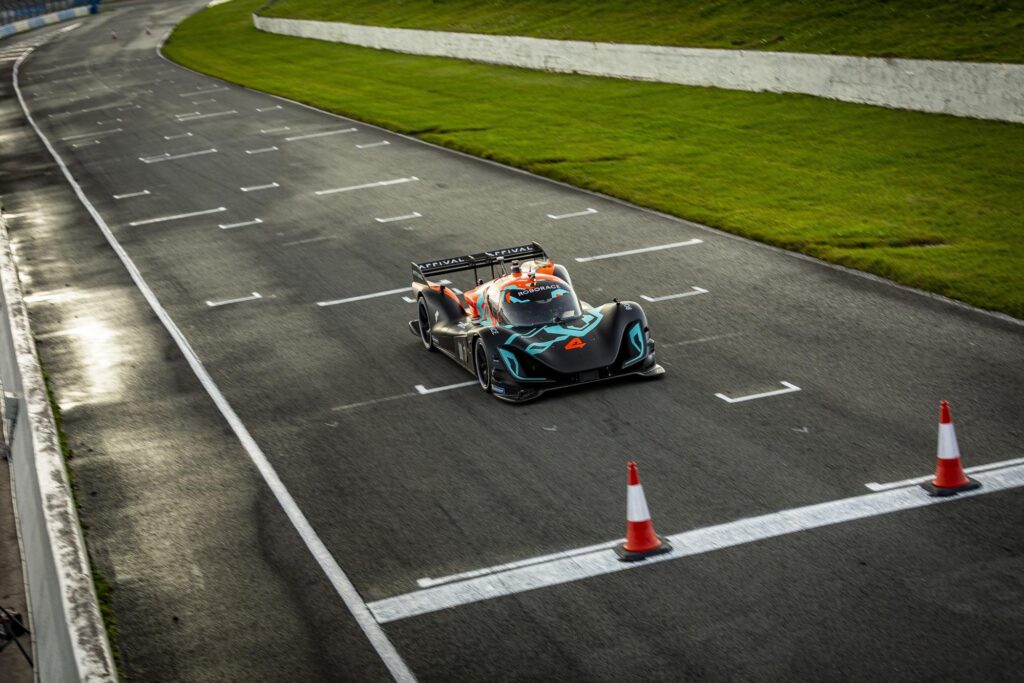Supervisor: Linus Nwankwo, M.Sc.;
Univ.-Prof. Dr Elmar Rückert
Start date: 30th October 2023
Theoretical difficulty: mid
Practical difficulty: High
Abstract

This thesis explores machine learning techniques for analysing onboard recordings from the TU Graz Racing Team, a prominent Formula Student team. The main goal is to design and train an end-to-end machine learning model to autonomously discern race courses based on sensor observations.
Further, this thesis seeks to address the following research questions:
- Can track markers (cones) be reliably detected and segmented from onboard recordings?
- Does the delineated racing track provide an adequate level of accuracy to support autonomous driving, minimizing the risk of accidents?
- How well does a neural network trained on simulated data adapt to real-world situations?
- Can the neural network ensure real-time processing in high-speed scenarios surpassing 100 km/h?
Tentative Work Plan
To achieve the objectives, the following concrete tasks will be focused on:
- Thesis initialisation and literature review:
- Define the scope and boundaries of your work.
- Study the existing project in [1] and [2] to identify gaps and methodologies.
- Setup and familiarize with the simulation environment
- Build the car model (URDF) for the simulation (optional if you wish to use the existing one)
- Setup the ROS framework for the simulation (Gazebo, Rviz)
- Recommended programming tools: C++, Python, Matlab
- Data acquisition and preprocessing (3D Lidar and RGB-D data)
- Collect onboard recordings and sensor data from the TU Graz Racing track.
- Augment the data with additional simulated recordings using ROS, if necessary.
- Preprocess and label the data for machine learning (ML). This includes segmenting tracks, markers, and other relevant features.
- Intermediate presentation:
- Present the results of the literature study or what has been done so far
- Detailed planning of the next steps
- ML Model Development:
- Design the initial neural network architecture.
- Train the model using the preprocessed data.
- Evaluate model performance using metrics like accuracy, precision, recall, etc.
- Iteratively refine the model based on the evaluation results.
- Real-world Testing (If Possible):
- Implement the trained model on a real vehicle’s onboard computer.
- Test the vehicle in a controlled environment, ensuring safety measures are in place.
- Analyze and compare the model’s performance in real-world scenarios versus simulations.
- Optimization for Speed and Efficiency (Optional):
- Validate the model to identify bottlenecks.
- Optimize the neural network for real-time performance, especially for high-speed scenarios
- Documentation and B.Sc. thesis writing:
- Document the entire process, methodologies, and tools used.
- Analyze and interpret the results.
- Draft the thesis, ensuring that at least two of the research questions are addressed.
- Research paper writing (optional)
Related Work
[4] Z. Lu, C. Zhang, H. Zhang, Z. Wang, C. Huang and Y. Ji, “Deep Reinforcement Learning Based Autonomous Racing Car Control With Priori Knowledge,” 2021 China Automation Congress (CAC), Beijing, China, 2021, pp. 2241-2246, doi: 10.1109/CAC53003.2021.9728289.
[5] J. Kabzan, L. Hewing, A. Liniger and M. N. Zeilinger, “Learning-Based Model Predictive Control for Autonomous Racing,” in IEEE Robotics and Automation Letters, vol. 4, no. 4, pp. 3363-3370, Oct. 2019, doi: 10.1109/LRA.2019.2926677.
